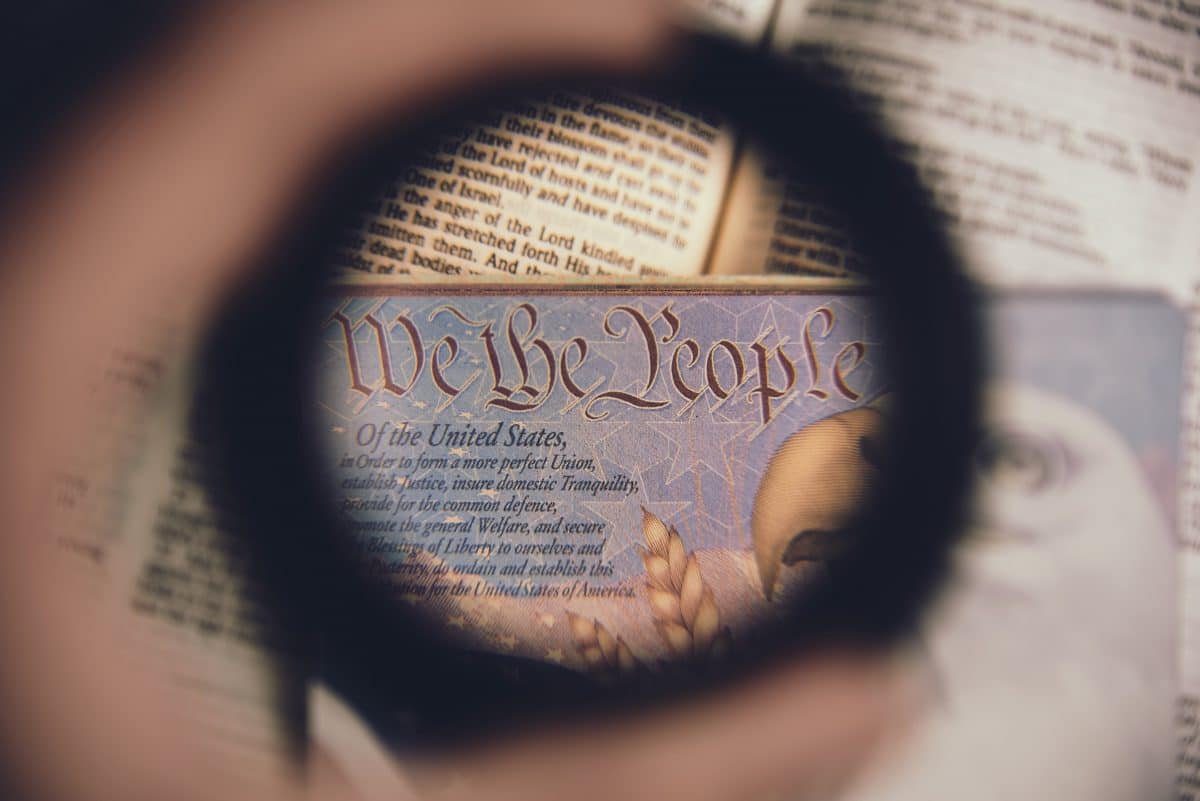NEW YORK CITY CIVIL RIGHTS ATTORNEY

Civil Rights Lawyer Alyce B. Wittenstein, Esq. with Supreme Court Justice Ruth Bader Ginsburg
Civil Rights are your guarantees by the Federal, State and Local government to certain human rights. This includes the right to vote, the right to privacy, freedom of speech and equal protection. When your Civil Rights are violated, and you suffer a physical or psychological injury as a result, you can sue for compensation. The first step is to speak to an experienced New York City civil rights lawyer to discuss your potential case.
Alyce B. Wittenstein, Esq. has been fighting for equality for over 20 years. She was a teaching assistant for the late great Haywood Burns, founded a human rights delegation to Haiti and studied with Ruth Bader Ginsburg. She will bring her experience, dedication, and energy to your case. If you are looking for a New York City Civil Rights Attorney, we can help you.
The rights of citizens have evolved since the founding of our country. Back then only white men had rights. The campaign to achieve equal rights for women, minorities, and persons with disabilities has made great progress, but there is more work to do. Today, civil rights actions are based primarily on violations of the First, Fourth and Eighth Amendments of the United States Constitution. They are bolstered by Statutes such as Civil Rights Act of 1964, Title IX of the Education Act of 1972, The New York State Civil Rights Law, The New York State Human Rights Law and The New York City Human Rights Law. A New York City Civil Rights Attorney can help you assert these rights.
Some examples of Civil Rights violations are:
- Employment Discrimination
- Sexual Harassment
- Unequal Pay
- Discrimination in Housing
- Police Misconduct
- Police Brutality;
- Excessive Force;
- False arrest and wrongful arrest;
- Police corruption;
- False confessions;
- False evidence planted by the law enforcement officer;
- False imprisonment;
- Unlawful intimidation by police officers; and
- Sexual abuse by police officers.
- Prison Abuse and Neglect
- Hate Crimes
- Destruction or vandalism of religious property
- Using force to deter the use of a healthcare facility
NEW YORK CITY CIVIL RIGHTS ATTORNEY
Find Law.com lists many of these laws, and of course it will take an expert Bronx Civil Rights Attorney to properly address these claims in a lawsuit:
- Age Discrimination Act of 1975 Prohibits discrimination on the basis of age in programs or activities receiving federal financial assistance.
- Age Discrimination in Employment Act (ADEA) Prohibits employers from discriminating against workers and applicants who are 40 years of age and older, based on their age.
- Air Carrier Access Act of 1986 (ACAA) Prohibits discrimination against individuals with disabilities in the provision of (including access to) air transportation.
- Americans with Disabilities Act (ADA) Protects persons with disabilities from discrimination in many aspects of life, including employment, education, and access to public accommodations.
- Architectural Barriers Act of 1968 Requires that buildings and facilities designed, constructed, altered, or leased with certain federal funds after September 1969 must be accessible to and useable by handicapped persons.
- Civil Rights Act of 1964 Prohibits employment discrimination based on race, color, religion, sex, and national origin.
- Civil Rights Act of 1991 (Intentional Employment Discrimination) To amend the Civil Rights Act of 1964 to strengthen and improve Federal civil rights laws, to provide for damages in cases of intentional employment discrimination, to clarify provisions regarding disparate impact actions, and for other purposes.
- Civil Rights of Institutionalized Persons Act Protecting persons in institutions (including residents in government-run nursing homes, and prisoners) from unconstitutional conditions.
- Disaster Relief and Emergency Assistance Act Provides for equitable and impartial relief operations, without discrimination on the grounds of race, color, religion, nationality, sex, age, or economic status.
- The Equal Credit Opportunity Act (ECOA) Prohibits creditors from discriminating against credit applicants on the basis of race, color, religion, national origin, sex, marital status, age, or because an applicant receives income from a public assistance program.
- Equal Pay Act of 1963 Requires that employers pay all employees equally for equal work, regardless of whether the employees are male or female.
- Fair Housing Act (FHA) Prohibits discrimination in the sale, rental, and financing of housing based on race, color, national origin, religion, sex, familial status, and disability.
- Family and Medical Leave Act (FMLA) Gives employees the right to take time off from work in order to care for a newborn (or recently adopted) child, or to look after an ill family member.
- Individuals with Disabilities Education Act (IDEA) Ensuring that the rights of students with disabilities are protected, and that all children with disabilities have available to them a free appropriate public education.
- National Voter Registration Act (NVRA)
Establishes procedures to increase the number of eligible citizens who register to vote in elections for national office.
- Older Workers’ Benefit Protection Act Clarifies the protections given to older individuals in regard to employee benefit plans.
- Pregnancy Discrimination Act Prohibits employment discrimination against female workers who are (or intend to become) pregnant — including discrimination in hiring, failure to promote, and wrongful termination.
- Rehabilitation Act of 1973 Protects disabled individuals from discrimination by employers and organizations that receive federal financial assistance.
- Religious Land Use and Institutionalized Persons Act (RLUIPA) Protect individuals, houses of worship, and other religious institutions from discrimination in zoning and landmarking laws; also protects the religious exercise of inmates and other persons confined to certain institutions.
- Title IX of the Education Amendments of 1972 Prohibits sex discrimination in education programs that receive federal funds, to increase educational and athletic opportunities for females in schools and colleges nationwide.
- U.S. Code Title 42, Chapter 21 — Civil Rights Title 42, Chapter 21 of the U.S. Code prohibits discrimination against persons based on age, disability, gender, race, national origin, and religion (among other things) in a number of settings — including education, employment, access to businesses and buildings, federal services, and more. Chapter 21 is where a number of federal acts related to civil rights have been codified — including the Civil Rights Act of 1866, Civil Rights Act of 1964, and the Civil Rights of Institutionalized Persons Act.
- The U.S. Constitution | Articles | Amendments The U.S. Constitution, ratified in 1789, outlines the role and operation of government in the United States. Includes links to all articles and amendments, with annotations.
- Voting Rights Act of 1965 (VRA) Prohibits the denial or restriction of the right to vote, and forbids discriminatory voting practices nationwide.




